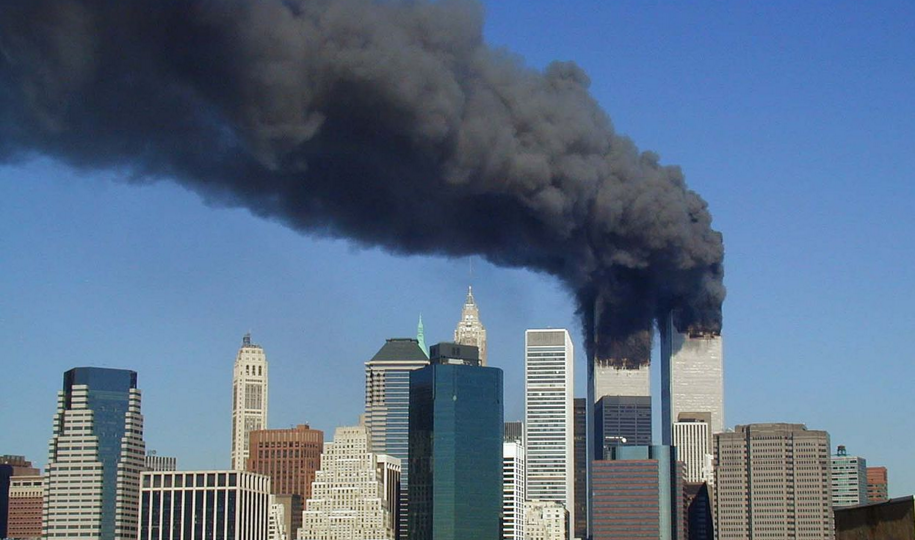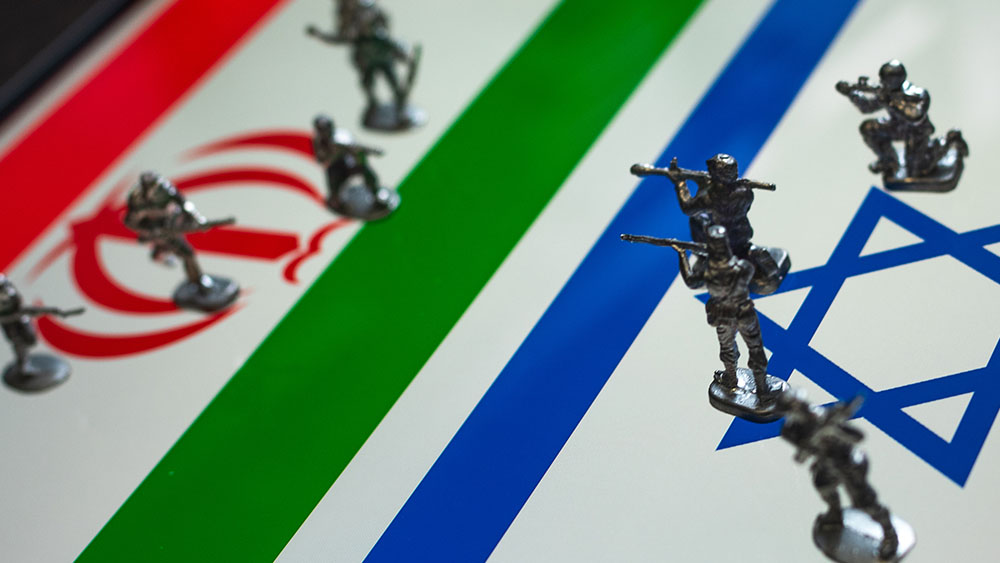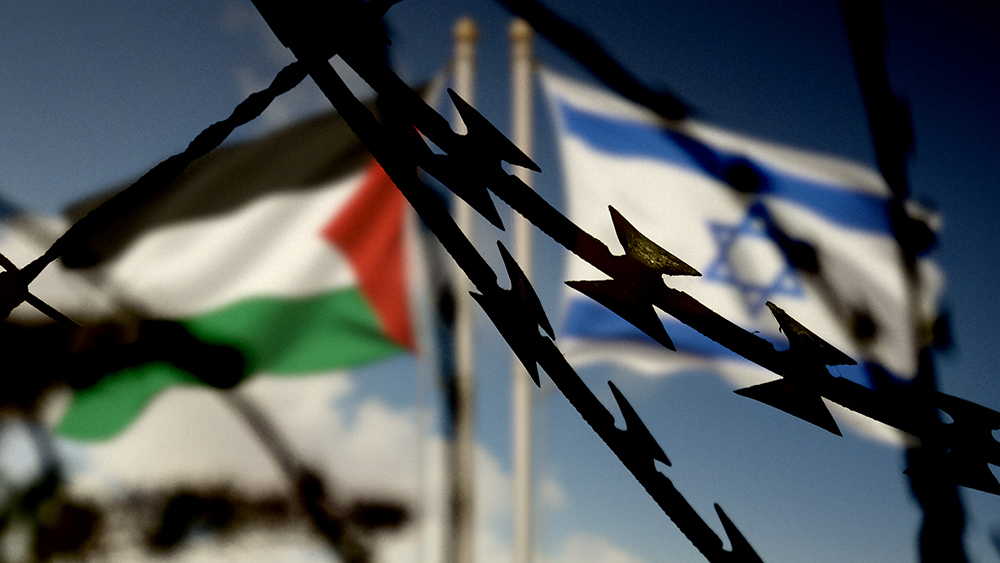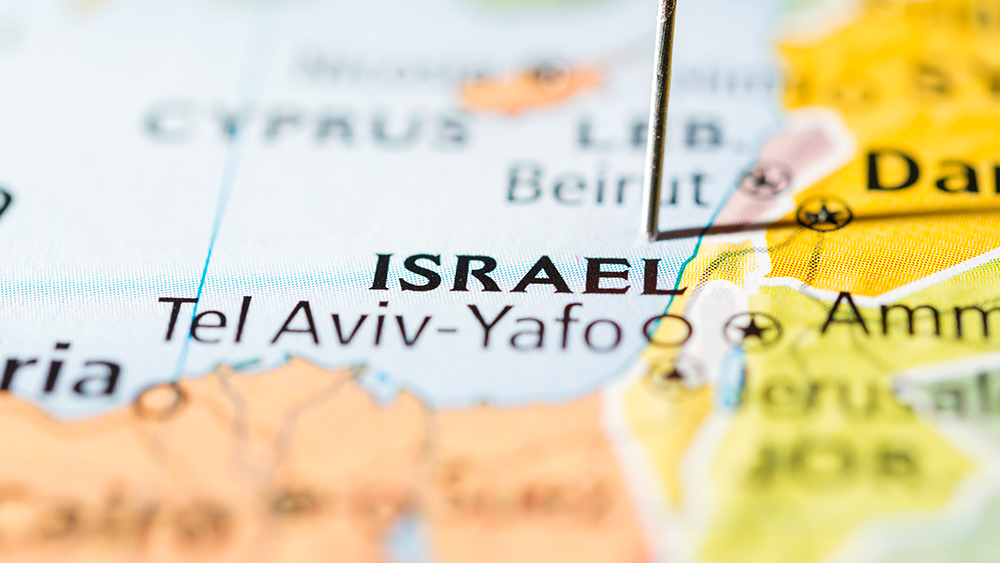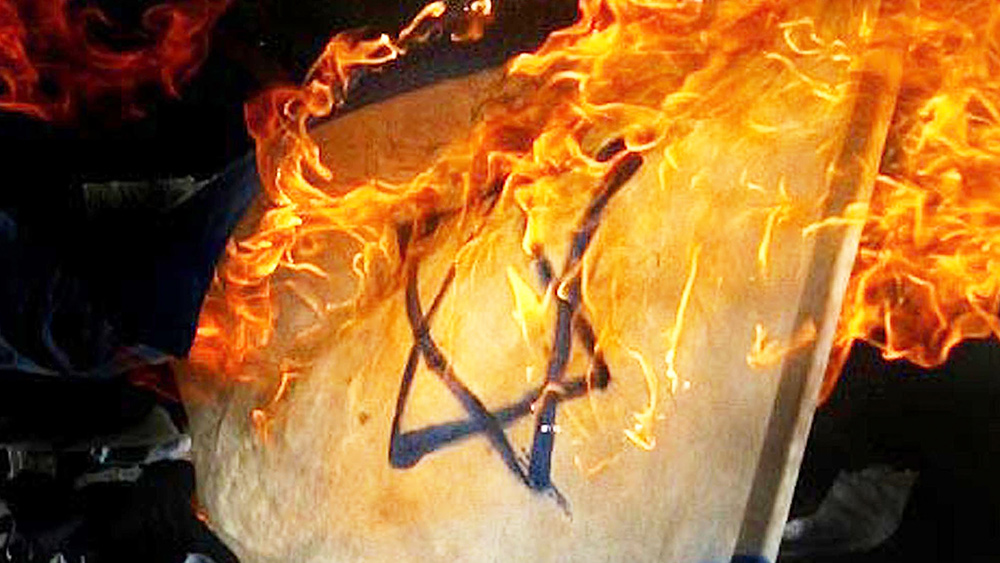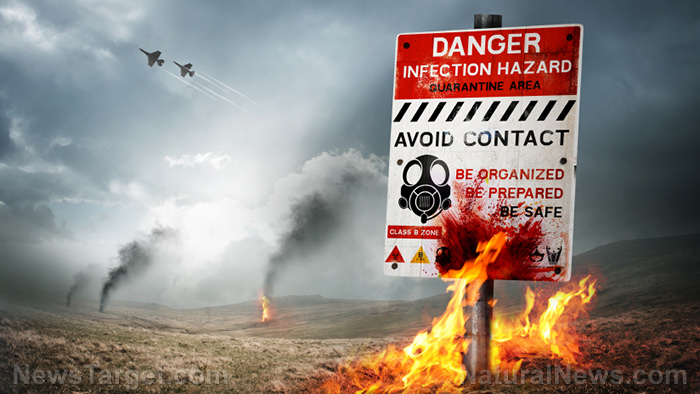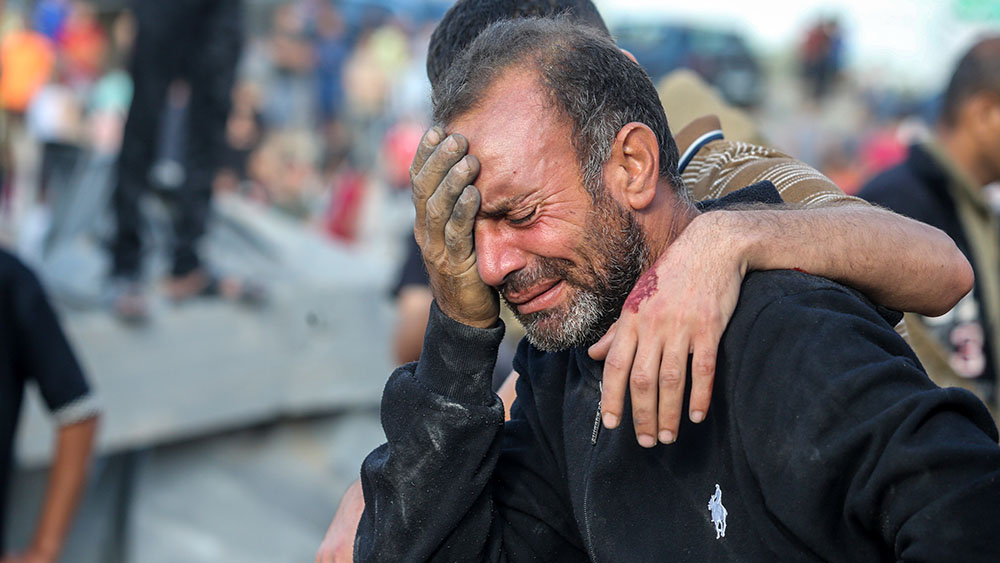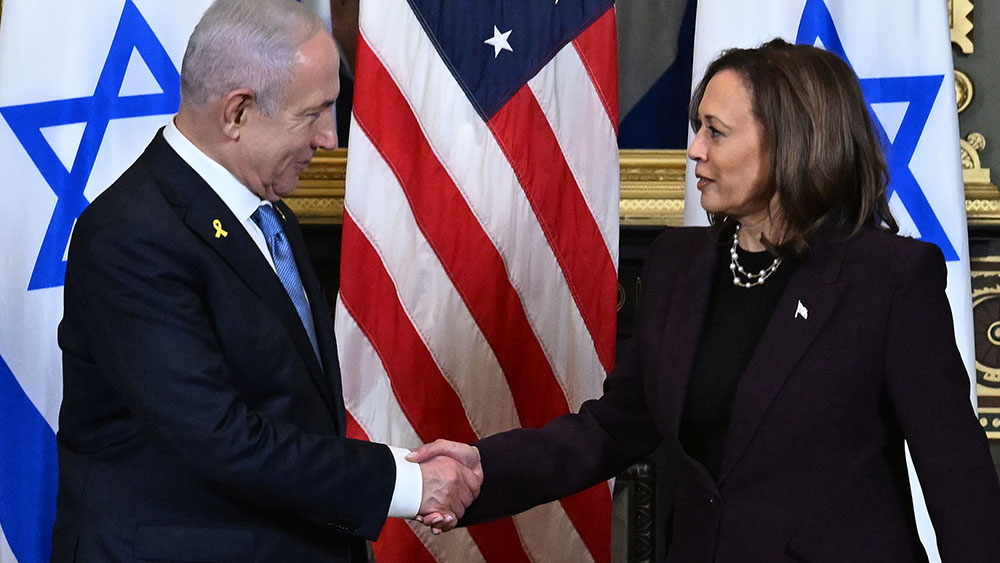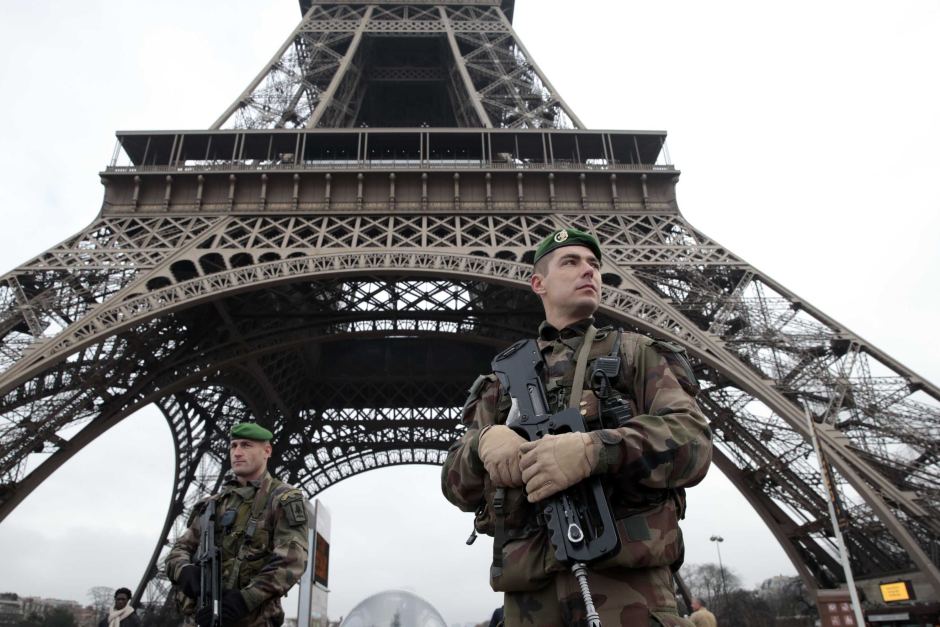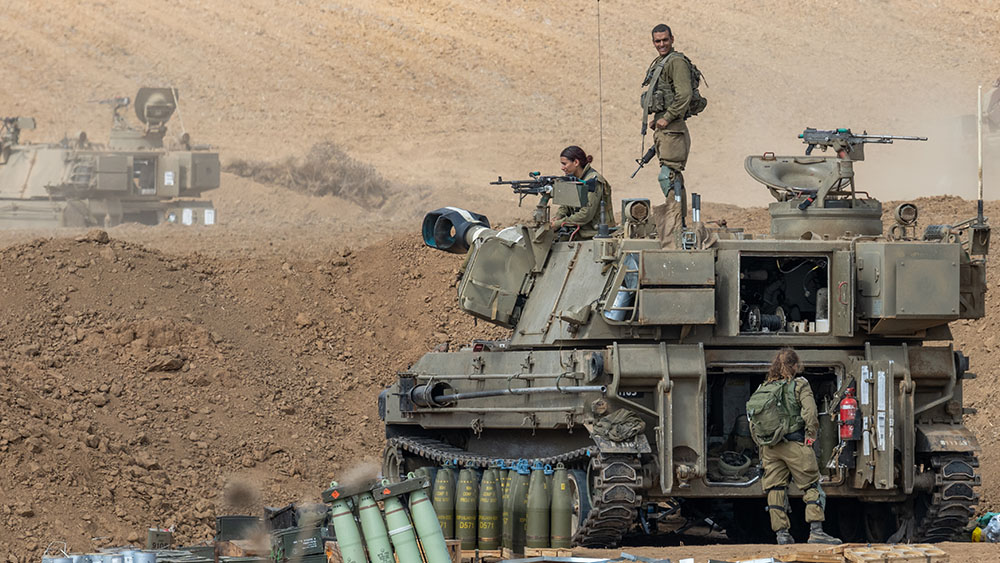Israel’s assassination of Hamas leader Haniyeh in Iran signals Netanyahu’s willingness to escalate conflict into full-scale regional war
08/05/2024 / By Richard Brown
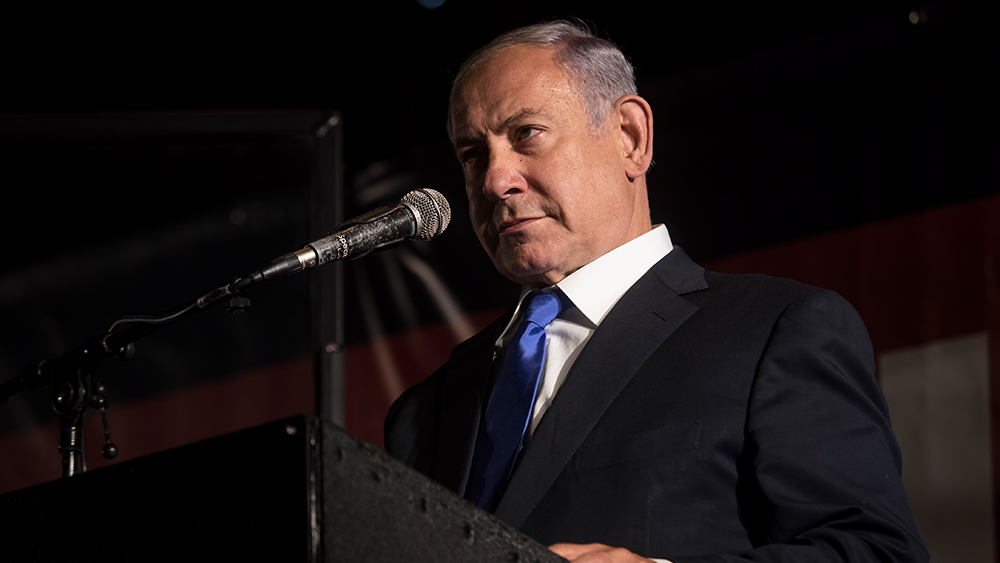
By ordering the assassination of Ismail Haniyeh, the leader of Hamas’ political bureau, Israeli Prime Minister Benjamin Netanyahu has sent a decisive message to Iran and the broader resistance movements in the region: He aims to escalate the conflict into a full-scale regional war.
There is still no solid confirmation regarding how Haniyeh was killed, but a report claims that Israeli intelligence agency Mossad was able to bribe Iranian Islamic Revolutionary Guard Corps agents to plant a remotely detonated explosive device in his room. Other reports suggest a drone or missile strike.
This move not only highlights Netanyahu’s aggressive stance but also reflects a calculated effort to deepen Israel’s involvement in ongoing hostilities.
The killing of Haniyeh, who was based in Tehran and had no direct role in the recent Hamas attack on Oct. 7, has significant implications. He was engaged at the time in peace negotiations with mediators from Qatar and Egypt, and his death has effectively dismantled any prospect for dialogue aimed at securing the release of Israeli hostages or ending the ceaseless killing of Palestinians in Gaza.
This development was underscored by the fact that United States Secretary of State Antony Blinken publicly denied any prior knowledge or involvement in the attack, further eroding Washington’s already fragile credibility. (Related: U.S. leading diplomatic efforts to prevent Israel from retaliating against Hezbollah strikes.)
Despite this denial, U.S. security officials were briefing journalists within an hour of the attack, confirming the death of a senior member of the “Axis of Resistance,” an informal, Iranian-led political and military coalition made up of a variety of national governments and militant groups, including Hamas in Gaza and Hezbollah in Lebanon.
Netanyahu eager to go to war with Iran
Netanyahu’s move aligns with his long-standing belief that Iran is the primary force behind regional resistance, with Hamas and Hezbollah acting as its proxies.
This perspective has been a central theme in Netanyahu’s political strategy, which has consistently aimed to undermine Palestinian aspirations and prevent the establishment of a Palestinian state.
Netanyahu’s recent actions suggest that he views Haniyeh’s assassination as a strategic step towards his ultimate goal of securing a decisive victory for Israel, even if it means dragging the U.S. and potentially other friendly nations into a broader regional conflict.
In addition to the broader strategic implications, Netanyahu’s decision also has immediate consequences for ongoing negotiations.
His assassination is expected to strengthen Hamas rather than weaken it. Haniyeh, who had lost numerous family members, including sons and grandsons, to Israeli attacks, was respected for his ability to prioritize the Palestinian cause over personal grief. His death is likely to galvanize support for Hamas and enhance its stature in Palestinian and broader Arab and Muslim communities.
The broader context of this escalation includes significant internal challenges for Israel. Recent reports have highlighted severe mistreatment of detainees at the Sde Teiman detention center, where allegations of torture and abuse have emerged.
These revelations, coupled with protests and unrest, underscore growing domestic instability within Israel. The arrest of soldiers accused of sexual abuse and the subsequent protests at Sde Teiman, involving both reservists and far-right parliamentarians, reflect deep fractures within the Israeli military and society.
Netanyahu’s decision to escalate the conflict with the assassination of Haniyeh appears to be a strategic gamble, aimed at redirecting attention from internal issues and consolidating political support.
However, it risks exacerbating existing tensions and destabilizing Israel further. The Israeli military’s understanding of the situation indicates that killing Haniyeh may have been counterproductive, given the current inability to achieve a decisive military victory or address the complex geopolitical dynamics involving Hezbollah, the Houthis, and other resistance groups.
Watch this broadcast from PressTV discussing how Ismail Haniyeh’s assassination could not have been done by Netanyahu without the blessing of the United States.
This video is from the Tony Gosling channel on Brighteon.com.
More related stories:
Yemen’s Houthis pledge solidarity and support for Lebanon if Israel invades.
Only a failing U.S. empire would be so blind as to cheer Netanyahu and his genocide.
Netanyahu expected to delay Gaza ceasefire deal until after the U.S. presidential election.
Israeli official says it’s clear Netanyahu doesn’t want a deal with Hamas.
Sources include:
Submit a correction >>
Tagged Under:
assassination, Axis of Resistance, Benjamin Netanyahu, big government, ceasefire, chaos, conspiracy, culture wars, dangerous, escalation, Hamas, Holy War, insanity, Iran, Ismail Haniyeh, Israel, Israel-Iran conflict, national security, peace negotiations, Twisted, unhinged, WWIII
This article may contain statements that reflect the opinion of the author
RECENT NEWS & ARTICLES
COPYRIGHT © 2017 TERRORISM NEWS

